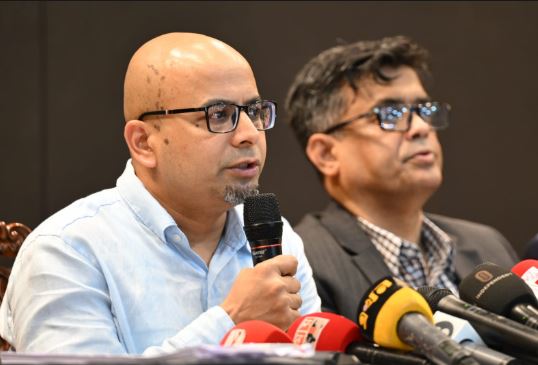News Flash

DHAKA, Sept 4, 2025 (BSS) - The Advisory Council today approved 'Telecommunications Network and Licensing Policy, 2025', marking a historic breakthrough in the country's telecom sector.
Chief Adviser's Special Assistant on the Ministry of Posts, Telecommunications and Information Technology Faiz Ahmad Taiyeb disclosed this at a press conference at the Foreign Service Academy in the city and presented the details of the newly approved policy.
He said, "The previous licensing regime, which had a total of 3,299 licenses of 26 types, could not ensure the standardization of telecom services and price consistency as per quality. To address this challenge, the new policy has limited the licensing structure to only 3 types".
It will allow for greater focus on ensuring improved Quality of Service (QoS) as per the needs of the citizens, Taiyeb added.
The previous system created room for middlemen who claimed shares of revenue without adding significant value to the sector, he said, adding, "It has been changed under the new policy. As a result, government revenues will increase and be redirected to citizen-centric initiatives like expanding coverage in climate-vulnerable areas and ensuring affordable services."
Based on the recommendation of a committee formed by the Chief Adviser and chaired by the Planning Adviser, about 10 important changes were made before the revised proposal for this policy was presented to the Advisory Council, Taiyeb said.
The new policy will allow telecom companies to provide better services competitively through active and passive sharing, he said, adding that it will ensure quality improvement in telecom services and create opportunities for increased foreign direct investment (FDI).
Furthermore, the policy creates room for next-generation services and technologies, including Mobile Virtual Network Operators (MVNOs), VoWiFi, WiFi-6, WiFi-7, Internet of Things (IoT), and Artificial Intelligence (AI), the Special Assistant said.
Simultaneously, he said, by removing barriers to providing new digital services, innovation opportunities have been created for newcomers, especially for SMEs.
"Through this, the backward communities will also come under the ambit of connectivity and telecom services will be able to make an effective contribution to important sectors, including agriculture, education, and health," Taiyeb said.